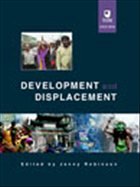Development and Displacement draws together a number of emergent challenges to the practices and theories of development in the contemporary world, associated with forms of displacement. Starting with the headline-grabbing emergencies associated with forced displacement, both international and within states, the book moves on to explore the often more voluntary movements associated with diasporic networks and communities. Using a broad definition of displacement it explores the influence of trends in the mobility of people, as well as information and investments, on the development of cities. Finally, the same approach is used to understand the growing role of transnational campaigns and networking in shaping development agendas. The authors offer a careful analytical approach to the phenomenon of displacement, drawing on the work of development theorists, geographers and cultural studies. Illustrating the persisting importance of places and territories in a globalising world where social and economic networks and flows are increasingly significant, Development and Displacement offers a range of suggestions as to how development agendas, agencies of development, and conceptualisations of development are being reframed in response to this shifting environment. Students will find their reading of this text well supported by clear marginal notes, extended definitions of key terms, embedded case studies, extracts from relevant texts, as well as numerous maps, illustrations and diagrams.
Review quote:
'..an excellent resource for students....the illustration of a new way of approaching development provides a refreshingly empowering approach to displacements.'
This book explores some of the challenges that the various forms of displacement present for development thinking and practice. It does so by exploring contemporary trends in the light of longstanding empirical and theoretical connections between mobility and development.
Review quote:
'..an excellent resource for students....the illustration of a new way of approaching development provides a refreshingly empowering approach to displacements.'
This book explores some of the challenges that the various forms of displacement present for development thinking and practice. It does so by exploring contemporary trends in the light of longstanding empirical and theoretical connections between mobility and development.

